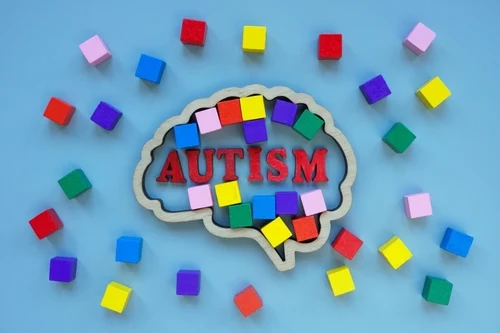At Carolina Recovery Center, we are committed to providing compassionate, comprehensive care for individuals with autism and addiction. As a dual diagnosis treatment center, we address both addiction and underlying mental health challenges like depression or anxiety. We offer inpatient and outpatient rehab options as well as personalized therapy plans.
Our team has extensive experience helping autistic people reclaim their lives from alcohol and drug use. Contact us today to learn more about our addiction treatment services and how we can support you on your journey to recovery.
What is Autism Spectrum Disorder (ASD)?
Autism Spectrum Disorder (ASD) is a developmental condition that affects how individuals communicate, interact with others, and experience the world around them. People with autism may have challenges in social communication and interaction, often struggling to interpret social cues or express themselves effectively. These challenges can range from mild to severe, and each individual with autism is unique, exhibiting a broad range of abilities and needs.
In addition to social difficulties, people with ASD may have restricted or repetitive behaviors, interests, or activities. They might also be highly sensitive to sensory experiences such as sounds, lights, or textures, which can make certain environments overwhelming. While the exact cause of autism remains unclear, a combination of genetic and environmental factors is believed to play a role.
Autism is a spectrum, meaning that there is no “one-size-fits-all” description. Some individuals with ASD may require significant support in daily life, while others may be able to live independently with minimal assistance. Regardless of the level of support needed, autism is a lifelong condition that can present ongoing challenges and obstacles.
The Connection Between Autism and Addiction
For individuals with autism, navigating social situations, emotional regulation, and stress management can be difficult. These challenges may contribute to an increased risk of developing mental health disorders, including addiction. The connection between autism and addiction is complex and multifaceted, involving several key factors.
ASD and Social Isolation
Many individuals with autism experience social isolation due to challenges with social communication and forming meaningful relationships. This isolation can lead to feelings of loneliness, frustration, or inadequacy, which may make individuals more vulnerable to turning to substances like alcohol or drugs as a means of coping with negative emotions. These substances may temporarily numb feelings of isolation, but they can also exacerbate underlying emotional struggles, leading to a vicious cycle.
Sensory Sensitivities and Substance Use
Many people with autism have heightened sensitivity to sensory stimuli, such as loud noises, bright lights, or certain textures. This sensory overload can lead to anxiety, irritability, or meltdowns, making it difficult for individuals with autism to function in everyday situations. In some cases, individuals may turn to alcohol or drugs as a way to self-medicate and manage these overwhelming sensations.
While substances may provide temporary relief, they can create new problems, including addiction and worsening mental health symptoms. Over time, individuals with autism may rely on substances as a coping mechanism, rather than addressing the root causes of their emotional distress.
Challenges with Emotional Regulation
Emotional regulation is often a significant challenge for individuals with autism. They may struggle to identify and manage their emotions, leading to difficulties in handling stress, anxiety, or frustration. In some cases, individuals may turn to alcohol or drugs as a way to escape or numb difficult emotions. Unfortunately, this behavior can quickly escalate into a pattern of addiction if the underlying emotional issues are not addressed in a healthy way.
Co-occurring Mental Health Conditions
It’s also important to note that people with autism are at a higher risk of experiencing other mental health conditions, such as anxiety, depression, or obsessive-compulsive disorder (OCD). These co-occurring conditions can contribute to the development of addiction. For example, someone with autism and anxiety might use alcohol to calm their nerves, while someone with depression might turn to drugs to escape feelings of sadness or hopelessness.
Autism and Addiction: Dual Diagnosis Treatment
As a dual diagnosis treatment center, Carolina Recovery Center offers tailored treatment plans that address autism and addiction. Our approach is compassionate, holistic, and personalized to meet the needs of each individual. We understand that everyone’s journey is different, and our team of experienced professionals is here to provide support, guidance, and encouragement every step of the way.
Inpatient Rehab
For individuals with severe addiction, inpatient rehab may be the most appropriate option. In this setting, patients receive around-the-clock care in a structured environment. Inpatient rehab provides a safe space where people can focus entirely on their recovery without the distractions or triggers that may exist in their home or social environments.
Outpatient Rehab
For individuals who do not require inpatient care or who are transitioning from an inpatient program, outpatient rehab is an excellent option. Our outpatient programs allow individuals to receive treatment while continuing to live at home, attend school, or maintain employment. This flexibility can be particularly beneficial for individuals with autism who may need to maintain a sense of routine and stability.
Medication Management
For those struggling with severe depression, anxiety, ADHD, or other conditions, medication can play a key role in stabilization and symptom management.
- Carefully prescribed, non-addictive medications
- Regular monitoring to prevent dependency
- Alternative approaches for those who prefer non-medication treatments
Therapy and Counseling
We utilize a variety of therapeutic approaches. Some of the therapies that can benefit autistic people who are struggling with addiction include the following.
- Cognitive Behavioral Therapy (CBT) helps people recognize and change negative thought patterns that fuel addiction.
- Dialectical Behavior Therapy (DBT) promotes emotional regulation and helps individuals develop healthy coping strategies.
- Individual Therapy provides a safe space to address thoughts, feelings, and past experiences that contribute to addiction and mental health struggles.
- Family therapy helps improve communication, address family dynamics, and build a strong support system for recovery.
Wellness Programs for the Mind, Body, and Spirit
We understand that recovery is a journey that requires addressing all aspects of well-being: mind, body, and spirit.
- Nutritional Therapy & Fitness Programs help the body heal from substance use.
- Mindfulness Meditation teaches people how to manage emotions without turning to drugs or alcohol.
- Art and Music Therapy offer a healthy way to express emotions.
Support Groups
Support groups are an essential part of the recovery process, providing individuals with a safe and understanding space to share their experiences, challenges, and successes. These groups offer peer-led encouragement, helping individuals feel less isolated by connecting with others who are going through similar struggles. When people realize they aren’t alone in their struggle, healing becomes possible.
Why Choose Carolina Recovery Center?
At Carolina Recovery Center, we understand that choosing the right treatment center is an important decision, and we are here to provide you with the support and care you need to start your journey toward recovery. We offer a safe, compassionate, and comprehensive approach to addiction treatment, and our experienced team works diligently to ensure each individual receives the best care possible.
Here are several reasons why Carolina Recovery Center is a trusted choice for addiction treatment.
Experienced and Compassionate Team
We understand the complexities of addiction and are committed to treating the whole person, not just the addiction. With years of experience in dual diagnosis treatment, we are equipped to help individuals facing both addiction and co-occurring mental health conditions such as autism, anxiety, depression, and more. Our compassionate approach ensures that every client feels heard, understood, and supported throughout their recovery journey.
Supportive Environment
At Carolina Recovery Center, we provide a nurturing, supportive environment that fosters healing and growth. Our center offers a safe and comfortable setting where individuals can focus on their recovery without distractions or triggers from the outside world. Whether through our inpatient or outpatient programs, we ensure that clients feel respected, valued, and supported every step of the way.
Comprehensive Addiction Treatment Plans
We offer both traditional therapies, including group therapy and trauma therapy, as well as holistic approaches like mindfulness. Whether someone is struggling with alcohol, drugs, or both, we ensure that the treatment plan is tailored to their unique situation. For individuals with a dual diagnosis, such as autism and addiction, our treatment approach is designed to address both conditions simultaneously.
Aftercare and Continued Support for Relapse Prevention
We understand that recovery doesn’t end when treatment is completed. It’s an ongoing process. That’s why we offer comprehensive aftercare services to help individuals maintain their sobriety and prevent relapse. Aftercare is a crucial aspect of addiction recovery, providing clients with continued support as they transition back into their daily lives. Our aftercare programs include ongoing counseling and support groups.
Contact Our Rehab Center Today
At Carolina Recovery Center, we are here to help individuals with autism and addiction achieve lasting recovery. Our inpatient and outpatient programs, along with our holistic therapies, provide the support needed to build a strong foundation for recovery and a fulfilling life.
Contact us today to start your journey toward healing.



